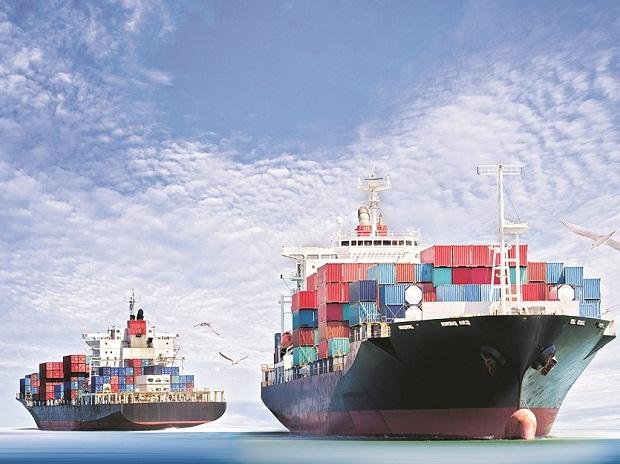
Maritime security is being undermined at an alarming pace by challenges around contested boundaries, the depletion of natural resources and armed attacks — from piracy to terrorism — senior United Nations officials told the Security Council today, as world leaders adopted a presidential statement outlining their concerns over the increasing frequency of such events.
In a presidential statement presented by the Prime Minister of India, Council President for August, the 15-member organ noted the problem of transnational organized crimes committed at sea — including illicit trafficking in narcotic drugs, smuggling of migrants and illicit trafficking in firearms — as well as the “deplorable” loss of life and adverse impact on international trade stemming from such activities.
Against that backdrop, it emphasized through the statement the importance of safeguarding the legitimate uses of the oceans, lives of people at sea and security of coastal communities, affirming that international law — reflected in the 1982 United Nations Convention on the Law of the Sea, among other global instruments — provides the legal framework for combating these illicit activities.
It called on Member States to implement the International Ship and Port Facility Security Code and Chapter XI-2 of the International Convention for the Safety of Life at Sea, and to work with the International Maritime Organization (IMO) to promote safe and secure shipping while ensuring freedom of navigation. Member States, by other terms, should also consider ratifying, acceding to and implementing the 2000 United Nations Convention against Transnational Organized Crime and the Protocols thereto, and designate authorities to take appropriate measures in accordance with these conventions.
Narendra Modi, Prime Minister of India, described the oceans as “our shared global commons” and a lifeline of international trade. However, this common maritime heritage faces multiple threats. Maritime routes are being misused for piracy and terrorism, and maritime disputes are erupting between countries, with climate change and natural hazards posing additional challenges. “We need a framework for mutual understanding and cooperation in order to conserve and utilize our shared maritime heritage,” he emphasized.
Modi called for removing barriers to legitimate maritime trade, stressing that any hindrance can threaten the global economy. Based on an open and inclusive ethos, India has developed a vision of “Security and Growth for All in the Region”, through which it aims to create an inclusive framework for maritime security in its region. Maritime disputes should be resolved peacefully and in accordance with international law, he said, and with this understanding, India resolved its maritime boundary with Bangladesh. Noting that threats from natural hazards and non-State actors should be tackled jointly, he said India has been a first responder during cyclones, tsunamis and pollution-related maritime disasters.
He also advocated for conservation of the maritime environment and marine resources, greater mutual cooperation in ocean science research and responsible maritime connectivity, stressing that global norms and standards should be developed for infrastructure projects aimed at boosting maritime trade.
Vladimir V. Putin, President of the Russian Federation, said his country promotes strict adherence to key norms and principles, such as respect for sovereignty, non-intervention in internal affairs and peaceful dispute settlement through dialogue. United Nations principles must be observed in the peaceful and responsible use of maritime spaces, their natural resources, protection of the marine environment and in sustainable activity in the global ocean.
Anthony Blinkin, Secretary of State of the United States, said the international community has long benefitted from the rules-based maritime order, where the 1982 United Nations Convention on the Law of the Sea sets out the legal framework for sea activities. Yet, despite all the ways freedom of the seas and the unimpeded flow of maritime commerce have delivered for nations — and the indispensable role that the maritime order has played in security cooperation — “the order is under serious threat”.
The representative of China stressed the significance of maintaining maritime security amid the pandemic, helping to end regional conflicts and addressing rampant crimes such as piracy, armed robbery and human trafficking. Noting that China has been advocating for “common maritime security”, he added that some countries are pursuing exclusive regional strategies in the Asia-Pacific region. He emphasized that maritime security cooperation should uphold the principle of “community with shared future”.
Representatives from Tunisia, Ireland, Saint Vincent and the Grenadines, United Kingdom, Mexico, Norway, Estonia, France, Niger, Vietnam, Kenya, Congo, United Nations Office on Drugs and Crime (UNODC) expressed their views at the summit.
